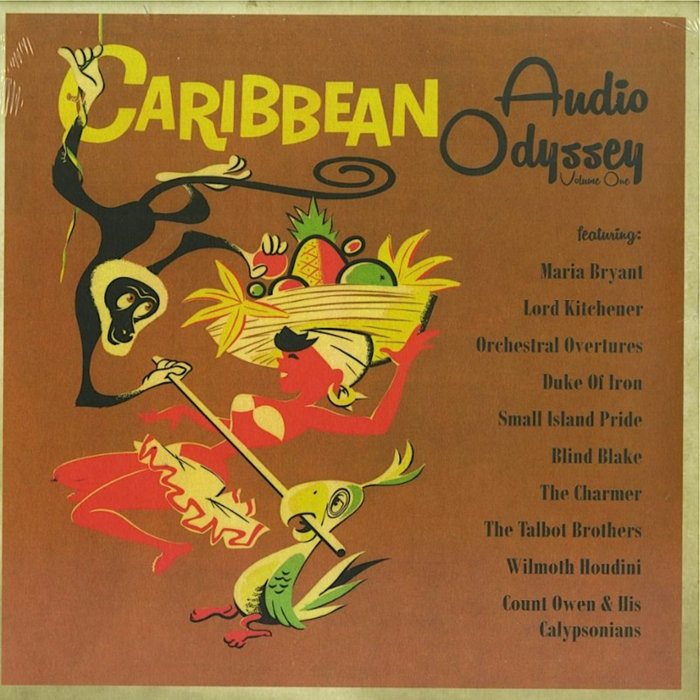
Me Ting Is Mine – Orchestral Overtures
this blog is GROOVY – check out great Soul, Funk, Jazz, Hip Hop, Bass, Breaks , Reggae, House n many more TUNES
Ah, Jamaica! Known for its sun-soaked beaches, mouth-watering jerk chicken, and that irresistible reggae beat. But before Bob Marley and the Wailers brought reggae to the world stage, there was another rhythm brewing on the island—a little something called mento. Let’s dive into this groovy genre and uncover its roots, evolution, and some funny facts about the musicians who keep it alive.
Mento is the original folk music of Jamaica that dates back to the early 20th century. Think of it as a blend of Caribbean traditional tunes with African rhythms laced through European influences. It’s characterized by acoustic instruments like banjos, guitars, marimbas, and those cheeky hand drums known as “jugs.”
Imagine sitting under a palm tree with your friends while sipping coconut water—this is mento! It’s lively yet laid-back; perfect for a dance or just chilling on a sunny day.
Mento emerged during colonial times when slaves were introduced to Western musical elements. The fusion birthed songs that spoke about daily life in Jamaica—love stories, social issues, and even comedic tales filled with local slang.
In 1950s Jamaica, mento started catching attention beyond island borders thanks to tourists flocking in for some sun and fun. Enterprising locals began performing these upbeat tunes at hotels while curious visitors tapped their feet along with infectious beats.
The late 1940s through the early ’60s saw mento hit mainstream music charts alongside ska (another Jamaican gem). Artists like Harry Belafonte popularized it globally with hits like “Day-O” (Banana Boat Song) which had roots steeped in mento vibes!
But don’t get too comfy thinking it’s all sunshine; many artists struggled financially because their catchy tunes often got snatched up without credit—a tale as old as time in showbiz!
Some bands would have players using makeshift instruments! You’d see guitarists strumming away on homemade banjos crafted from paint cans or family heirloom furniture turned into percussion—Yup! There goes Grandma’s favorite chair providing beats instead of comfort!
Musicians loved embracing humor so much they adopted wild stage names! Ever heard of “Lord Flea”? This guy rolled around Kingston singing funny songs about love gone wrong while dressed up like an elaborate royal courtier—it was definitely more than just music!
Picture this: A harmonica player trying his best not to lose balance riding his bike between gigs across town—you can bet he learned how to multitask pretty well! Talk about pedal power mixed with soulful sounds.
In an era where tourism began booming post-war but regulations tightened up harder than grandma’s grip over her last slice of fruitcake—it became almost comical how musicians sometimes hid their instruments inside food crates just to sneak them past customs officers hoping they’d go unnoticed.
Many famous mento songs are cheeky takeoffs involving puns or innuendos that could make even Shakespeare chuckle out loud if he ever heard ‘em! “No More Alcohol” parodies those who drink way too much until morning light kicks them offstage—isn’t poetic justice sweet?
Fast forward through decades—the funky soundscape kept evolving amidst social changes leading us toward ska then finally reggae taking center stage worldwide—but wait…mentors never faded completely—they adapted! Modern artists incorporate electronic elements while keeping those distinct acoustic flavors intact preserving that vibrant community spirit no matter which way you groove today.
Mento may not get quite as much airtime nowadays compared to its offspring genres but don’t count it out yet—the heritage remains strong among cultural festivals showcasing ecstatic performances reminiscent from yesteryears alongside fresh talents emerging within scenes across Europe & North America too!
So next time you hear a bouncy tune full laughter twinkling behind every note remember—you’ve got mentors making mischief around corners turning everyday realities into joyous melodies celebrating life’s simple pleasures mixing rhythms painting smiles upon faces everywhere!
From street corners echoing delightful jigs to high-end studios working magic blending vintage flair seamlessly together—mento holds tightly onto history reminding us where our beloved reggae found inspiration aplenty shaped primarily by unity uplifted joyfully amid uncertainties faced throughout generations.
Whether you’re digging deep down into roots exploring these vibrant sounds or simply catching live jam sessions under moonlight dancing barefoot alongside strangers sharing laughter & stories alike hold tight ’cause this ride will surely feel groovetastic forevermore!
So throw your hands up high like you’ve just caught a wave ’cause that’s what mento’s all about—joyously living life one groove at a time!

Me Ting Is Mine – Orchestral Overtures